Participants

Achyuta Adhvaryu is the Tata Chancellor’s Professor of Economics at the School of Global Policy and Strategy and the inaugural director of the 21st Century India Center. He is also the co-founder of Good Business Lab, a global nonprofit dedicated to improving the well-being of low-income workers. Adhvaryu’s research portfolio spans the fields of development economics, organizational economics, labor economics and health economics. He has a Ph.D. in economics from Yale University, and prior to joining UC San Diego he held faculty appointments at the University of Michigan and Yale.

Sumit Agarwal is Low Tuck Kwong Distinguished Professor of Finance at the Business School and a Professor of Economics and Real Estate at the National University of Singapore (NUS). He is the Managing Director of Sustainable and Green Finance Institute at NUS. He is also the President of Asian Bureau of Finance and Economic Research .
In the past, he has held positions as a Professor of Finance at the Business School, Georgetown University. Before that he was a senior financial economist in the research department at the Federal Reserve Bank of Chicago and prior to joining the Chicago Fed, he was a senior vice president and credit risk management executive in the Small Business Risk Solutions Group of Bank of America.
Sumit’s research interests include issues relating to household sustainablity, financial institutions, household finance, behavioral finance, and real estate markets. He has published over one hundred and fifty research articles in economics and finance journals among others. Additionally, he has co-written six books titled Why We Feel Blue When the Air is Grey , Kiasunomics 3, Introduction to Household Financial Management , Kiasunomics 2, Household Finance: A Functional Approach , and Kiasunomics , and also co-edited two collected volumes titled Impact of COVID-19 on Asian Economies and Policy Responses, and Household Credit Usage: Personal Debt and Mortgages.
He writes regular op-ed’s in the Straits Times and is featured on various media outlets like the CNA, BBC, CNBC, and Fox on issues relating to finance, banking, and real estate markets. Sumit’s research is widely cited in leading newspapers and magazines like the Wall Street Journal, The New York Times, The Economist, and the U.S Presidents Report to Congress. He also runs a Podcast on household financial decision making called Kiasunomics.
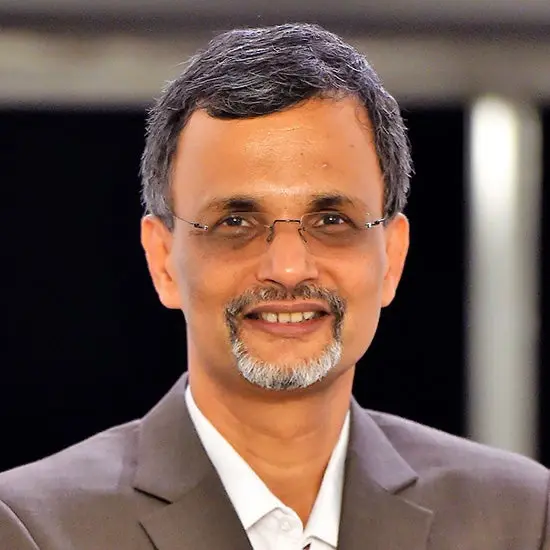
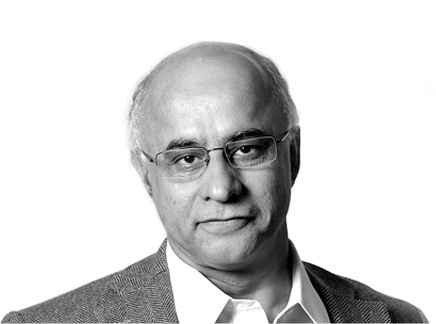
Subroto Bagchi is an accomplished professional whose career spans private-sector leadership, entrepreneurship, authorship, and public service. As co-founder of Mindtree in 1999, he began as chief operating officer and later served as executive chairman, stepping down after seventeen years in 2016. Mindtree was acquired by Larsen and Toubro in 2019, merging into LTIMindtree. By June 2024, LTIMindtree reported sales of USD 4.3 billion, a market cap of USD 17.84 billion, and 81,000 employees worldwide, ranking as the 1018th most valuable company globally.
Bagchi is the author of several bestselling books on entrepreneurship, organizational leadership, scale, and professionalism. Notable titles include The High Performance Entrepreneur, Go Kiss the World, and The Professional, which have maintained enduring popularity. His work has been translated into all major Indian languages as well as Chinese and Korean; Go Kiss the World has become an iconic and evergreen book.
In 2016, at the invitation of Naveen Patnaik, then chief minister of Odisha, Bagchi became chairman of the Odisha Skill Development Authority, also serving as chief spokesperson for the government on Covid-19. In 2024, he transitioned to chief adviser to the state government on institutional capacity building, with a focus on transforming Odisha’s civil service training institutions in preparation for the state’s centenary in 2036. Bagchi’s most recent book, The Day the Chariot Moved, documents his experiences in public service.
Bagchi’s wife, Susmita, is a noted Odia writer with more than 18 published books, and she served as chairperson of Mo School Abhiyan at the invitation of the Government of Odisha. Together, they are committed to nation building, particularly through work in healthcare and allied research and education.
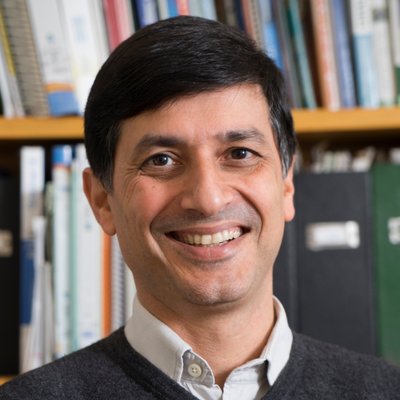
Navroz K. Dubash is a Professor of Public and International Affairs and the High Meadows Environmental Institute at Princeton University. His work explores emergent patterns of climate governance suitable to meet the twin challenges of the climate crisis and unmet development aspirations. He has written on national climate policy, international cooperation, energy transitions and air quality, with particular interest in multidisciplinary approaches to these complex issues.
Dubash joined the Princeton faculty after fifteen years of working in India with the Centre for Policy Research, and subsequently with the Sustainable Futures Collaborative (SFC), which he co-founded with colleagues. He continues to chair the Advisory Council of SFC, an independent non-profit research organisation focused on sustainable development.
He is currently co-Editor in Chief of Climate Policy and has published widely on climate change, energy, and air pollution in leading journals. He has also authored two books and edited ten edited collections. He has also written regularly for the media, including an ‘Expert Voices’ column for Science.
Dubash has been active as a researcher and policy advisor on climate and energy issues for 25 years. He has served on the Intergovernmental Panel on Climate Change (IPCC), most recently as Coordinating Lead Author for the Sixth Assessment Report, and as a member of the steering committee for the UNEP Emissions Gap Report. He has advised the Government of India over the last decade as a member of advisory committees on climate change, energy, and air and water policy, and coordinated a team to draft India’s Long-Term Low Emissions Development Strategy. Early in his career, he helped establish the global Climate Action Network as its first international coordinator.

Pascaline Dupas is Professor of Economics and Public Affairs at Princeton University. She joined the Princeton faculty in July 2023. She was previously the Kleinheinz Family Professor of International Studies at Stanford University, where she spent 12 years on the faculty. She has also held faculty positions at Dartmouth College and UCLA.
Pascaline Dupas is a development economist studying the challenges facing poor households in lower income countries and their root causes. Her goal is to identify interventions and policies that can help overcome these challenges and reduce global poverty. She conducts extensive fieldwork. Her ongoing research include studies of education policy in Ghana, family planning policy in Burkina Faso, and government subsidized health insurance in India, among others.
She is the co—President of the Bureau for Research and Economic Analysis of Development (BREAD), a board member and affiliate of the Jameel Poverty Action Lab (JPAL), and a Research Associate at the National Bureau for Economic Research (NBER).
In 2013 she received a National Science Foundation CAREER award, awarded by the US government to recognize and honor outstanding scientists and engineers at the outset of their independent research careers. In 2015 she received the Best Young French Economist Prize, awarded to the French economist under 40 whose work is most influential. She is a Fellow of the Econometric Society, a former Sloan Fellow, and a former Guggenheim Fellow.
Dupas studied philosophy and economics as an undergraduate student at the École Normale Superieure (Ulm). She obtained a PhD in Economics from the École des Hautes Études en Sciences Sociales in 2006.
.jpg)
Admiral James O. Ellis Jr. is Annenberg Distinguished Visiting Fellow at the Hoover Institution, where he oversees both the Global Policy and Strategy Initiative and the George P. Shultz Energy Policy Working Group. He retired from a 39-year career with the US Navy in 2004. He has also served in the private and nonprofit sectors in areas of energy and nuclear security.
A 1969 graduate of the US Naval Academy, Ellis was designated a naval aviator in 1971. His service as a navy fighter pilot included tours with two carrier-based fighter squadrons and assignment as commanding officer of an F/A-18 strike fighter squadron. In 1991, he assumed command of the USS Abraham Lincoln, a nuclear-powered aircraft carrier. After selection to rear admiral, in 1996, he served as a carrier battle group commander, leading contingency response operations in the Taiwan Strait.
His shore assignments included numerous senior military staff tours. Senior command positions included commander in chief, US Naval Forces, Europe, and commander in chief, Allied Forces, Southern Europe, during a time of historic NATO expansion. He led US and NATO forces in combat and humanitarian operations during the 1999 Kosovo crisis.
Ellis’s final assignment in the navy was as commander of the US Strategic Command during a time of challenge and change. In this role, he was responsible for the global command and control of US strategic and space forces, reporting directly to the secretary of defense.
After his naval career, he joined the Institute of Nuclear Power Operations (INPO) as president and chief executive officer. INPO, sponsored by the commercial nuclear industry, is an independent, nonprofit organization whose mission is to promote the highest levels of safety and reliability in the operation of commercial nuclear electric generating plants. He retired from INPO in 2012.
Ellis is also the former board chair of Level 3 Communications and served on the board of Lockheed Martin Corporation and Dominion Energy. In 2006, he became a member of the Military Advisory Panel to the Iraq Study Group. In 2009, he completed three years of service on the President’s Intelligence Advisory Board. A former board chair of the nonprofit Space Foundation, in 2018 he was appointed chairman of the Users’ Advisory Group to the Vice President’s National Space Council, where he served until 2022.
Ellis holds a master’s degree in aerospace engineering from the Georgia Institute of Technology. He was inducted into the school’s Engineering Hall of Fame in 2005. He completed US Navy Nuclear Power Training and was qualified in the operation and maintenance of naval nuclear propulsion plants. He is a graduate of the Navy Test Pilot School and the Navy Fighter Weapons School (Top Gun). In 2013, Ellis was elected to the National Academy of Engineering for “contributions to global nuclear safety.”
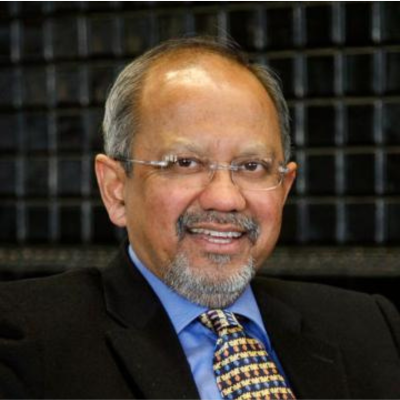
Šumit Ganguly is a senior fellow at the Hoover Institution and director of its Huntington Program on Strengthening US-India Relations. He is also the Rabindranath Tagore Professor in Indian Cultures and Civilizations, Emeritus, at Indiana University in Bloomington, where he served as distinguished professor and professor of political science and directed programs on India studies and on American and global security. He was previously on the faculty of the University of Texas at Austin, Hunter College, the Graduate Center of the City University of New York, and James Madison College of Michigan State University. He has also taught at Columbia University, Sciences Po (Paris, France), the US Army War College, the University of Heidelberg (Germany), Northwestern University, and the Rajaratnam School of International Studies at Nanyang Technological University (Singapore). He serves on the board of directors of the American Friends of the Alexander von Humboldt Foundation.
His honors include a Humboldt Research Fellowship (Alexander von Humboldt Foundation, Germany), the Pravasi Bharatiya Samman award (government of India), the Medal of the Chamber of Deputies (Italy), distinguished alumnus of Berea College, and distinguished alumnus of the Department of Political Science at the University of Illinois-Urbana/Champaign. He is also an elected member of the American Academy of Arts and Sciences and a life member of the Council on Foreign Relations. He has been a fellow and a guest scholar at the Woodrow Wilson International Center for Scholars (Washington, DC); a senior fellow at the Foreign Policy Research Institute; a visiting fellow at the Center for International Security and Cooperation and at the Center for Democracy, Development, and the Rule of Law (both at Stanford University); a visiting fellow at the German Institute of International and Area Studies (Hamburg); a distinguished visiting fellow at the Institute for Defense Studies and Analysis (New Delhi); the Asia Chair (research) at Sciences Po (Paris); and a visiting fellow at the Cooperative Monitoring Center (Sandia National Laboratory, Albuquerque, New Mexico). His research and writing focused on South Asia have been supported by grants from the Asia Foundation, the Smith Richardson Foundation, the Ford Foundation, the Carnegie Corporation of New York, the American Institute of Indian Studies, the W. Alton Jones Foundation, the US departments of State and Defense, and the United States Institute of Peace.
Dr. Ganguly is co-editor in chief of the International Studies Review and serves on the editorial boards of International Security, the Journal of Democracy, Foreign Policy Analysis, Asian Security, Small Wars and Insurgencies, Pacific Affairs, Modern Asian Studies, the International Journal of Development and Conflict, the India Review, the Nonproliferation Review, the Washington Quarterly, and Current History. He is a columnist for Foreign Policy and the founding editor of the India Review, Asian Security, and Indian Politics and Policy. Previously, he has been an associate editor at International Security and International Studies Quarterly and a contributing editor at Asian Affairs. Ganguly is the author or editor of more than twenty books, including Deadly Impasse: Indo-Pakistani Relations at the Dawn of a New Century (2016); The Oxford Short Introduction to Indian Foreign Policy (2018, 2015); How Rivalries End (2013, coauthored with William R. Thompson and Karen Rasler), which won the J. David Singer Award from the International Studies Association; The Crisis in Kashmir (1999, 1997); Fearful Symmetry: India and Pakistan under the Shadow of Nuclear Weapons (2005, coauthored with Devin Hagerty); The Sino-Indian Rivalry (2023, co-edited with Manjeet S. Pardesi and William R. Thompson); Understanding Contemporary India (3rd edition 2021, co-edited with Neil Devotta); The Oxford Handbook of Indian Politics (2024, co-edited with Eswaran Sridharan); and, most recently, The Troubling State of India’s Democracy(2024, co-edited with Larry Diamond and Dinsha Mistree).
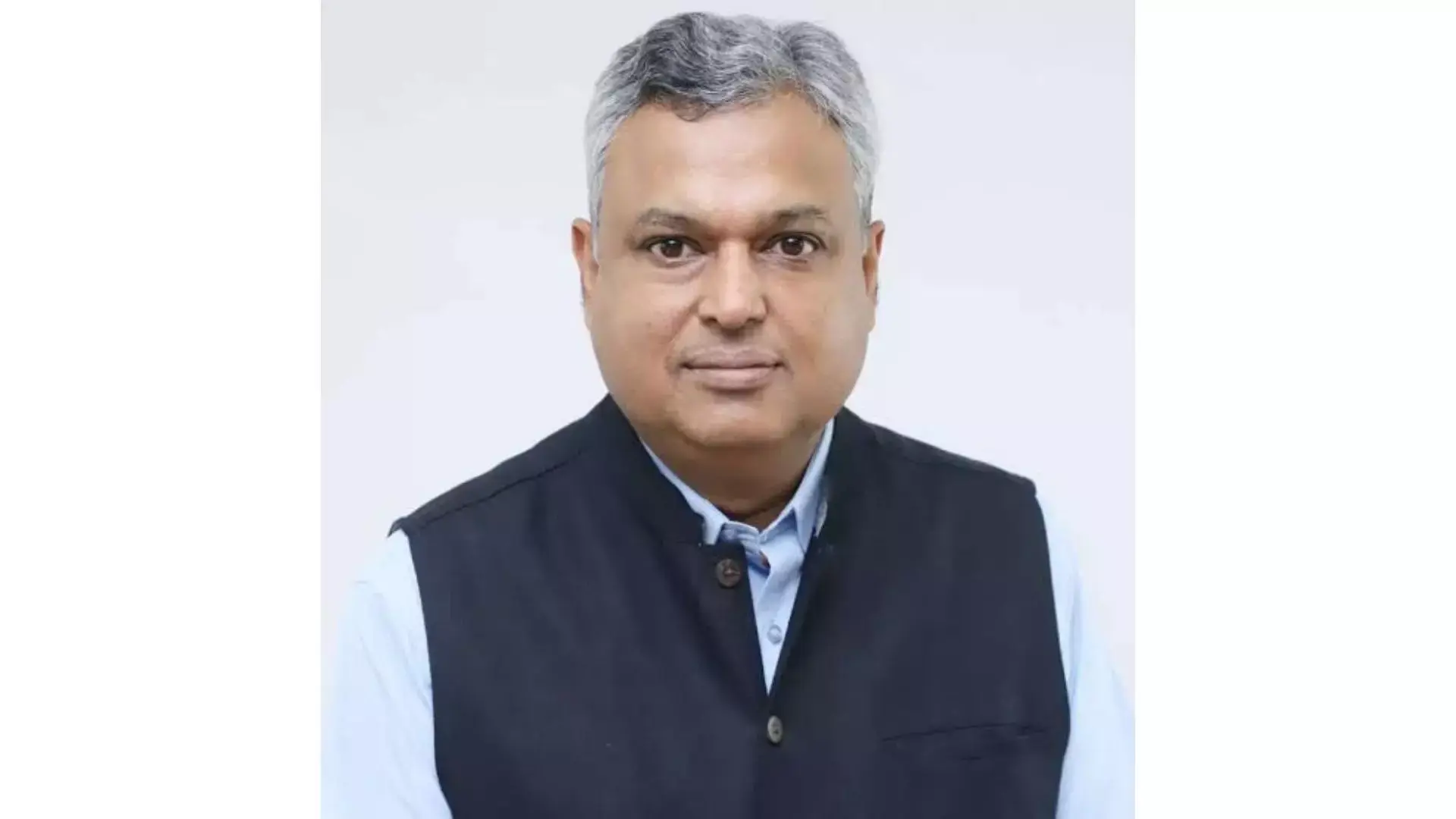
Dr. Saurabh Garg is a 1991 batch Indian Administrative Service officer of the Odisha Cadre. He is presently Secretary, Ministry of Statistics and Programme Implementation (MoSPI), Government of India. Prior to joining MoSPI, Dr Garg was Secretary, Ministry of Social Justice and Empowerment, where he was involved in the formulation of policies for social, economic and educational empowerment of the vulnerable and marginalised communities.
Previously as CEO, Unique Identification Authority of India, he was instrumental in expanding the usage of Aadhaar and strengthening the technology stack of the Aadhaar ecosystem. As Joint Secretary in the Department of Economic Affairs and Department of Expenditure, Government of India, he led the development of the National Investment and Infrastructure Fund (NIIF); worked on preparing the framework for digital payments; improving Foreign Direct Investment (FDI) policy; revamping of the gold sector policies and formulation of the Direct Benefits Transfer programme. He was on a secondment as Adviser at the World Bank, Washington DC where he assisted in the discharge of the Board’s oversight responsibilities through in-depth examination of World Bank policies and practices. As Principal Secretary, Agriculture and Farmers Empowerment, Government of Odisha, he led the development of a direct income transfer scheme for farmers and an agricultural policy focusing on the use of technology. In Government of Odisha, he also served as CMD, Grid Corporation and Odisha Power Transmission Company and Commissioner-cum-Secretary, in the Department of Public Enterprises and Department of Industries. As Commissioner-cum-Secretary, Housing and Urban Development, he spearheaded the development of the Odisha Urban Infrastructure Development Fund (OUIDF).
He has also served as a member of various Expert Committees/ Working Groups set up by the Ministry of Finance, NITI Aayog, RBI and SEBI and have been a Chairman / Managing Director/Board member of several public sector companies both at the State and Central level.
Prior to joining the IAS, he was with the Tata Administrative Service. He has rich experience in the domains of digitalization of agriculture, digital identities, direct benefit transfer schemes, infrastructure, Foreign Direct Investment (FDI) policies and urban development. Dr. Garg has contributed chapters in books and articles in journals on Innovations in Administration, Corporate Governance, Infrastructure Financing, Financial Inclusion, Investment Promotion and Urban Development.
Dr. Garg holds a Ph. D in International Economics and Development from the Johns Hopkins University, USA, an MBA from IIM, Ahmedabad where he was awarded a gold medal for academic excellence and a B. Tech from IIT Delhi. He was a Chevening Gurukul scholar at the London School of Economics, London.

During the Obama Administration, he served as the Chief Economist for the President’s Council of Economic Advisers, where he proposed and then co-led the development of the United States Government’s social cost of carbon. He is an elected member of both the National Academy of Sciences and the American Academy of Arts and Sciences, a fellow of the Econometric Society, a Carnegie Fellow (aka the “Brainy Award”), and a former editor of the Journal of Political Economy. Formerly, Greenstone was the 3M Professor of Environmental Economics at MIT and directed The Hamilton Project.
Greenstone’s research, which has influenced policy in the United States and globally, is focused on the global energy challenge that requires all societies to balance the needs for inexpensive and reliable energy, protection of the public’s health from air pollution, and minimizing the damages from climate change. Recently, his research has helped lead to the United States Government quadrupling its estimate of the damages from climate change, the adoption of pollution markets in India, and the use of machine learning techniques to target environmental inspections. As a co-director of the Climate Impact Lab, he is producing empirically grounded estimates of the local and global impacts of climate change. He created the Air Quality Life Index® that converts air pollution concentrations into their impact on life expectancy and co-founded Climate Vault, a 501(c)(3) that uses markets to allow institutions and people to reduce their carbon footprint and foster innovation in carbon dioxide removal.
He received a Ph.D. in Economics from Princeton University.
At Chicago from 2000–2003 and since 2014.

Eric Hanushek is the Paul and Jean Hanna Senior Fellow at the Hoover Institution of Stanford University. He is internationally recognized for his economic analysis of educational issues, and his research has had broad influence on education policy in both developed and developing countries. He received the Yidan Prize for Education Research in 2021.
His research linking teacher effectiveness to students’ learning gains forms the conceptual basis for using value-added measures to evaluate teachers and schools, now a widely adopted practice in many countries. His recent book, The Knowledge Capital of Nations: Education and the Economics of Growth summarizes his research establishing the close links between countries’ long-term rates of economic growth and the skill levels of their populations. Earlier books include Schoolhouses, Courthouses, and Statehouses, Courting Failure, Handbook on the Economics of Education, The Economics of Schooling and School Quality, Improving America’s Schools, Making Schools Work, Educational Performance of the Poor, and Education and Race, along with over 300 widely cited articles in professional journals.
He is a research associate of the National Bureau of Economic Research, the area coordinator for Economics of Education of the CESifo Research Network, and a research fellow of the IZA Institute of Labor Economics. He has been chair of the Board of Directors of the National Board for Education Sciences, and from 1983-85 he was Deputy Director of the Congressional Budget Office. He currently is a member of the National Assessment Governing Board (NAGB) that sets policy for the National Assessment of Educational Progress (NAEP).
He previously held academic appointments at the University of Rochester, Yale University, and the U.S. Air Force Academy. He is a member of the National Academy of Education and the International Academy of Education along with being a fellow of the Society of Labor Economists and the American Education Research Association.

Dr. Suhani Jalota is a Hoover Fellow at the Hoover Institution and founder of the Myna Mahila Foundation, a research-driven social enterprise with the mission to increase women’s agency and decision-making power to make them more confident, financially independent, and healthy.
In her research, Jalota uses field experiments to explore the intersection between women’s employment, health, and agency and how technology can amplify their self-determination. In her doctoral dissertation, she analyses constraints to women’s paid work and uses data from digital jobs performed at home in India to study the increase in female labor-force participation.
For the last fourteen years, Jalota has been working in urban slum areas and rural communities on projects ranging from adolescent girl health, water, and sanitation to social protection policies in South Africa, Thailand, and several cities in India.
Founded in 2015, Myna Mahila now has a reach of 1.5 million women and a team of seventy in India. Jalota also founded Myna Research, a data collection arm that manages field experiments on women's issues in urban slums in India. She and her team are currently developing Rani Work, an employment platform for women in India perform digital jobs on their smartphones.
Jalota was a Knight-Hennessy Scholar at Stanford University, where she received her PhD and MBA. She has a BS in economics and global health with the highest distinction from Duke University.
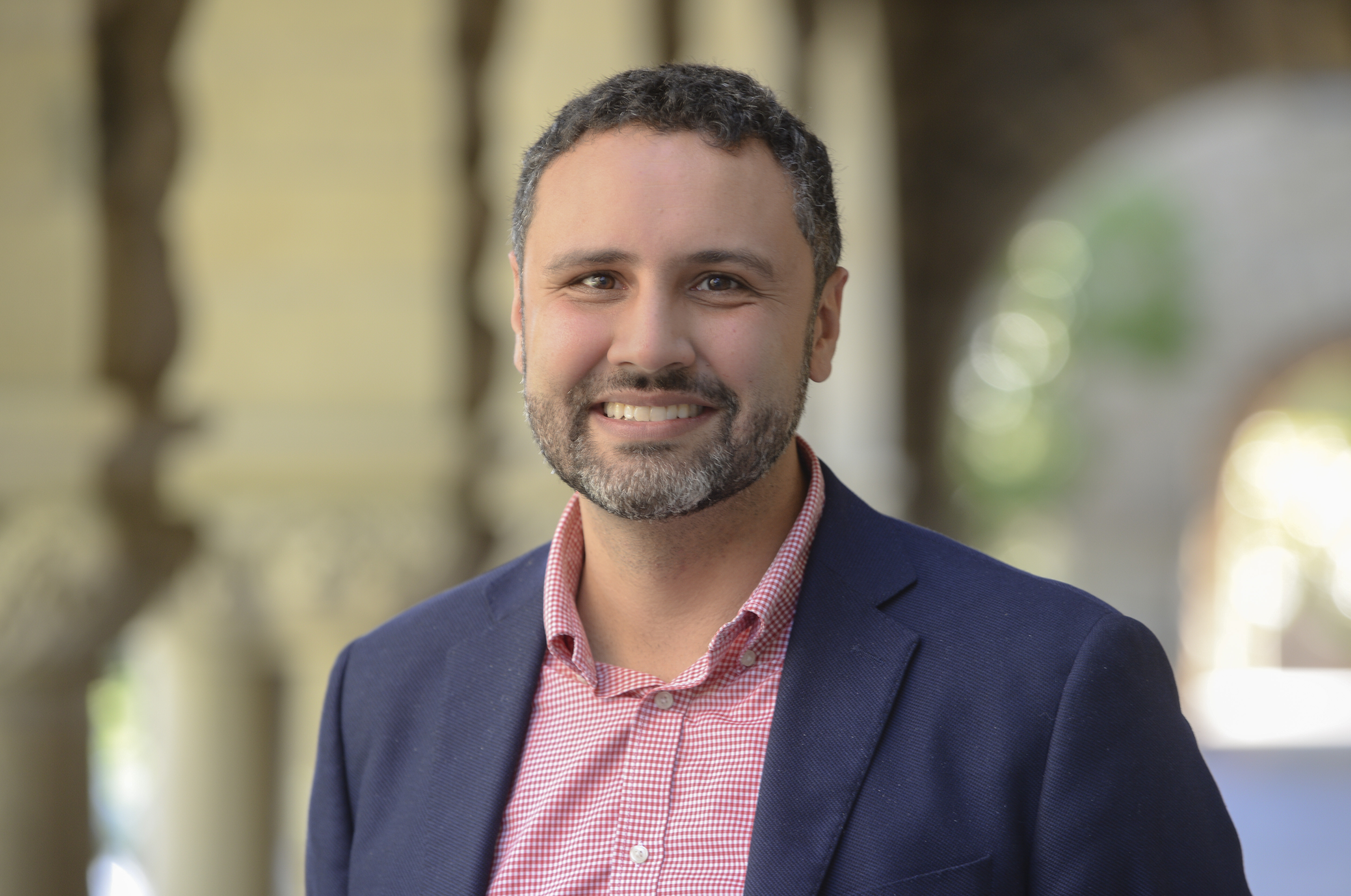
Dinsha Mistree is a research fellow at the Hoover Institution, a research affiliate at Stanford’s Freeman Spogli Institute for International Studies, and a research affiliate at the Neukom Center for the Rule of Law at Stanford Law School, where he teaches courses on state building and global poverty.
Mistree works on issues related to the US-India relationship. Recent and forthcoming scholarship includes a book project on the performance of the Indian diaspora in the United States and a forthcoming study on the history of the US-India Civil Nuclear Agreement. He also studies governance and economic growth in developing countries, with a special focus on India. To this end, Mistree is working on a comparison of India's computer hardware and software industries as well as a project on the regulation of food adulteration across South Asia. Additionally, he has conducted one of the largest quantitative studies of management practices in Indian higher education as well as a series of education-focused experiments with Indian job seekers. These experiments include measuring the employment returns of learning English, how to effectively teach digital literacy, and how to minimize interpersonal conflict. Apart from his scholarly work, Mistree publishes in a range of policy outlets.
Mistree holds a PhD and MA in politics from Princeton University, along with an SM and SB from the Massachusetts Institute of Technology. He previously held a postdoctoral fellowship at Stanford’s Center on Democracy, Development, and the Rule of Law and was a visiting scholar at the Indian Institute of Management-Ahmedabad.
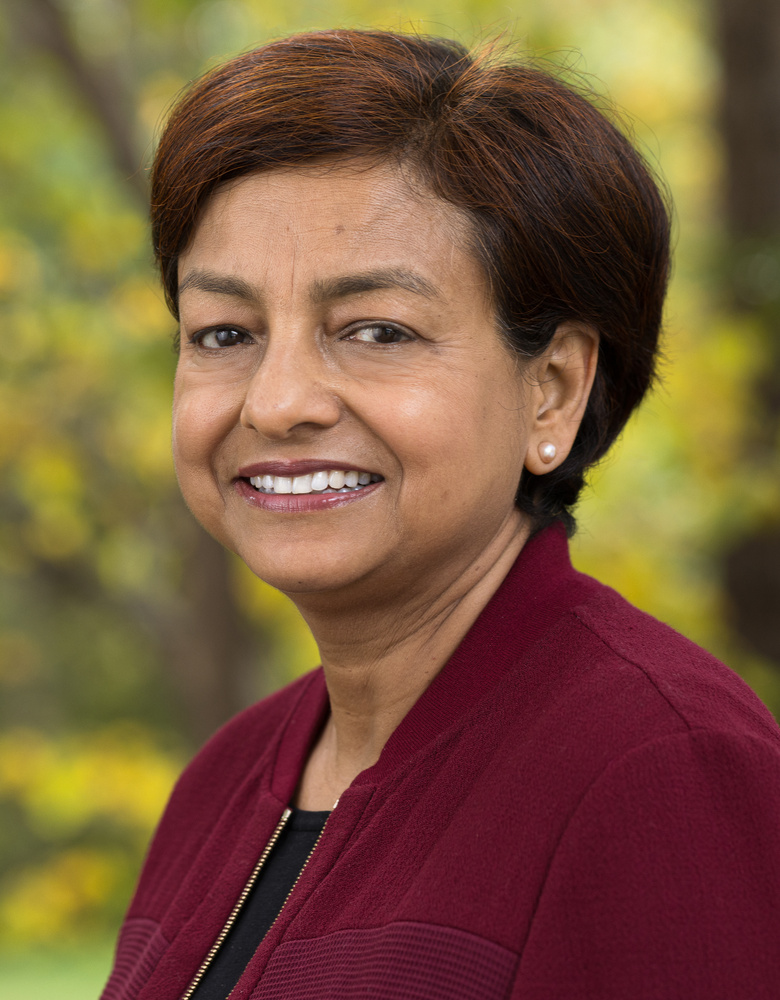
Manju Puri is the J. B. Fuqua Professor at the Fuqua School of Business, Duke University. Prior to Joining Fuqua, Professor Puri was an Associate Professor of Finance at Stanford Business School, which she joined after earning her Ph.D in finance at New York University and MBA from the Indian Institute of Management, Ahmedabad.
Professor Puri has expertise in the field of empirical corporate finance and, in particular, financial intermediation. Her work spans the areas of commercial banks, investment banks, venture capital, entrepreneurship, behavioral finance, and FinTech. Her work on banking examines both traditional forms of banking, relationship banking as well as new developments such as the rise of payment firms, Buy Now Pay Later, the use of digital footprints in credit by fintechs, and implications for financial inclusion. Her research has appeared in publications such as American Economic Review, Journal of Finance, Journal of Financial Economics, and Review of Financial Studies. She has been the recipient of the Sloan Research Fellowship as well as multiple awards from the National Science Foundation. Her publication record includes over 30 refereed papers in the top finance and economic journals. Her research has won many awards including four best paper awards at the FMA Annual Meetings, two Western Finance Association best paper awards, an All-Star award from Journal of Financial Economics, the Brennan best paper award at the Review of Financial Studies, and three Fama-DFA /Jenson best paper awards in the Journal of Financial Economics. Professor Puri serves as Editor of Review of Financial Studies.
In addition to her academic achievements, Professor Puri has served in many leadership roles. These include serving as President of the Western Finance Association (WFA), Chair of the Academic Female Finance Committee (AFFECT), AFA, Director of the American Finance Association (AFA), and was named Fellow of the Financial Management Association. She has served as the President of the Financial Intermediation Research Society and as Director of the Financial Management Association. She is a senior academic fellow at the Asia Bureau of Finance and Economic Research (ABFER) and a Research Associate with the National Bureau of Economic Research (NBER).
Professor Puri’s expertise extends beyond academia, she has consulted for governments, companies, and organizations in several countries. Professor Puri has given testimony before Congress, and worked with multiple regulatory authorities serving on the Financial Advisory Roundtable, Federal Reserve Bank of New York and on the Model Validation Council, Board of Governors of the Federal Reserve System. She has also served on the Bose Committee on the commission structure of financial product distributors for the Government of India, and on the Advisory Board of CAFRAL, Reserve Bank of India. She currently serves on the International Association of Deposit Insurers (IADI) Advisory Panel, Basel, and as Senior Advisor, Center for Financial Research, Federal Deposit Insurance Corporation (FDIC), and on the Advisory Panel of the Bank for International Settlements (BIS) Basel.
Professor Puri teaches an elective she created on “Raising Capital and Financial Technologies” for the MBA students at Fuqua. She has also taught a Ph.D class on Empirical Corporate Finance and has taught Advanced Corporate Finance, and Venture Capital Financing at Fuqua and Stanford Business School. She has mentored a number of Ph.D students who have been placed at the leading schools and institutions including Board of Governors, Columbia, Cornell, McKinsey, MIT, Purdue, and Yale University.
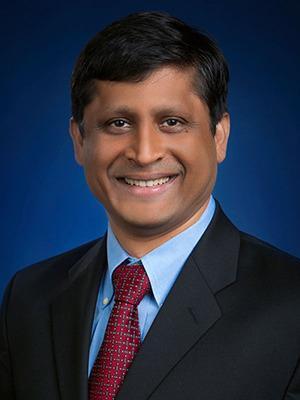
His research covers a wide range of topics in banking and corporate finance. His recent work is mostly related to digital payments and the measurement and detection of risk in banking. His research has been published in leading journals such as the Journal of Financial Economics, The Journal of Finance, The Review of Financial Studies, the Review of Finance, and the Journal of Monetary Economics.
He has served on the editorial boards of several of these journals and others, including the Journal of Financial Intermediation and the Journal of Banking & Finance. Purnanandam recently served as a director of the Financial Intermediation Research Society, and he currently serves as the vice president of the Midwest Finance Association.
He has been a visiting professor of finance at UCLA’s Anderson School of Management and a visiting scholar at the Federal Reserve Bank of Cleveland. Purnanandam is also a Distinguished Visiting Fellow to the Indian School of Business in Hyderabad, India.
He earned an M.S. and Ph.D. from Cornell University, an MBA from the Indian Institute of Management in Lucknow, and a B.Tech. from the Indian Institute of Technology in Kharagpur.

Raghuram Rajan is a senior fellow (adjunct) at the Hoover Institution and is the Katherine Dusak Miller Distinguished Service Professor of Finance at the University of Chicago's Booth School.
Prior to that, he was the twenty-third governor of the Reserve Bank of India from 2013 to 2016, as well as the vice chairman of the board of the Bank for International Settlements from 2015 to 2016. He was the chief economist and director of research at the International Monetary Fund from 2003 to 2006. Rajan’s research interests are in banking, corporate finance, and economic development, especially the role finance plays in it. His latest book, The Third Pillar: How Markets and the State Leave the Community Behind, was released on February 2019 by Penguin Press. He coauthored Saving Capitalism from the Capitalists with Luigi Zingales in 2003. He then wrote Fault Lines: How Hidden Fractures Still Threaten the World Economy,for which he was awarded the Financial Times-Goldman Sachs prize for best business book in 2010. Rajan was the president of the American Finance Association in 2011 and is a member of the American Academy of Arts and Sciences and the Group of Thirty.
In January 2003, the American Finance Association awarded him the inaugural Fischer Black Prize for the best finance researcher under the age of forty. The other awards he has received include the global Indian of the year award from NASSCOM in 2011, the Infosys prize for the Economic Sciences in 2012, the Deutsche Bank Prize for Financial Economics in 2013, and Euromoney magazine’s Central Banker of the Year Award 2014.

Paola Sapienza is the J-P Conte Family Senior Fellow at the Hoover Institution, where she co-directs the JP Conte Initiative on Immigration and she is a founding member of the Hoover Program on the Foundations for Economic Prosperity. She is Finance Professor Emerita at Northwestern University Kellogg School of Management, where she was a faculty member for over 25 years. Her research interests span from corporate governance to financial development, from political economy to the economic effects of culture and the economics of immigration. She maintains research affiliations with the National Bureau of Economic Research, Center for Economic Policy Research, and European Corporate Governance Institute.
Her work has been published in leading journals including the American Economic Review, Quarterly Journal of Economics, Journal of Finance, Review of Economic Studies, Science, and PNAS. She has appeared multiple times on the Thomson Reuters/Clarivate list of most influential scientific minds, and her research has been featured in major media outlets including the Wall Street Journal, Financial Times, and the Economist.
Sapienza holds a BA from Bocconi University in Milan and MA and PhD in Economics from Harvard University.
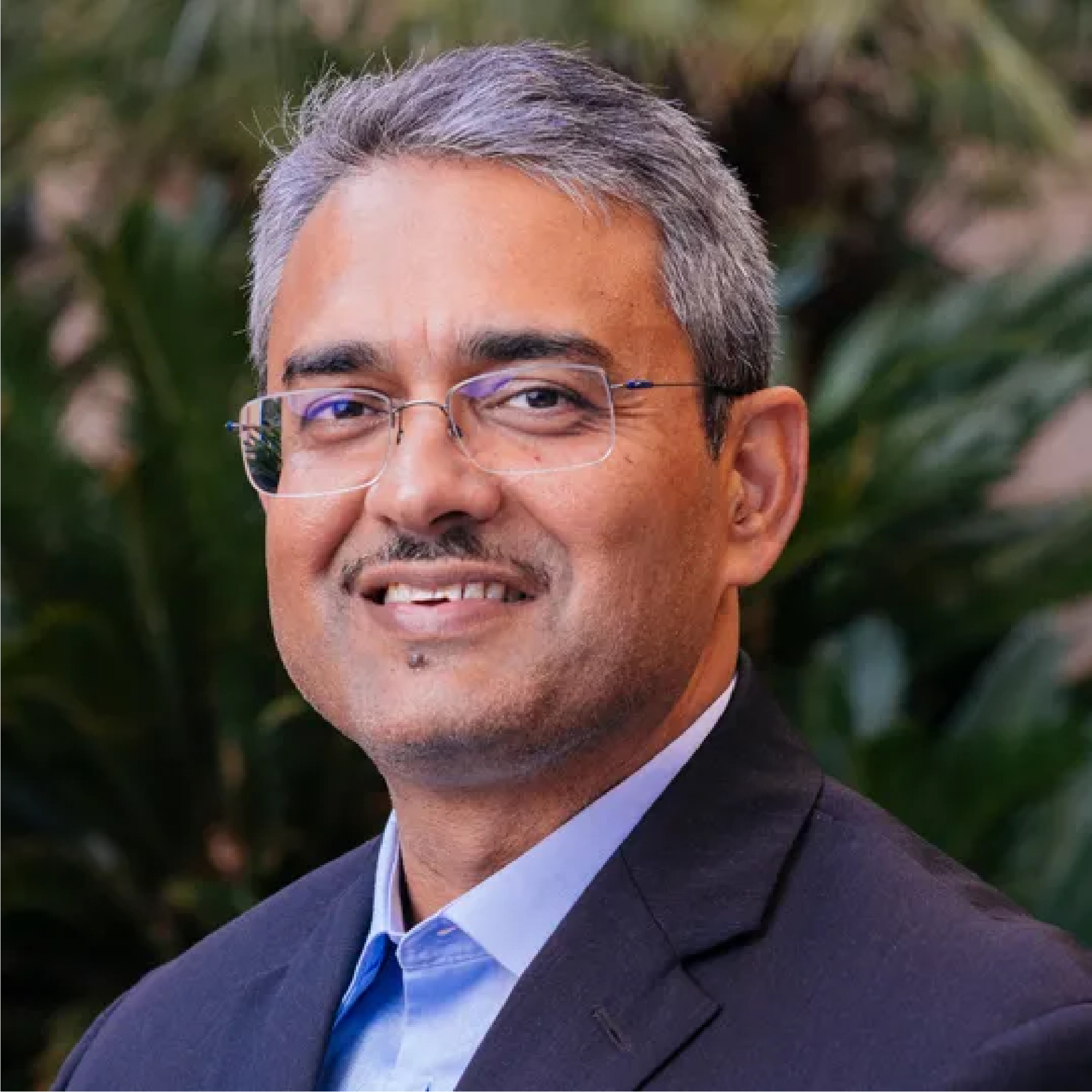
Amit Seru is a Senior Fellow at the Hoover Institution, the Steven and Roberta Denning Professor of Finance at the Stanford Graduate School of Business (Stanford GSB), a senior fellow at Stanford Institute for Economic Policy Research (SIEPR), and a Research Associate at the National Bureau of Economic Research (NBER). He was formerly a faculty member at the University of Chicago’s Booth School of Business. He is currently co-directing Hoover initiatives on corporate governance, long-run prosperity, and regulation and the rule of law.
Professor Seru’s research focuses on corporate finance with an emphasis on financial intermediation and regulation, technological innovation and incentive provision and financing in firms. His research in these areas has been published in American Economic Review, Journal of Political Economy, Quarterly Journal of Economics, Review of Economic Studies, Journal of Finance, Journal of Financial Economics, Review of Financial Studies, and other peer-reviewed journals. He is a co-editor of the Journal of Finance and was previously an editor of Review of Corporate Finance Studies, department editor (Finance) of Management Scienceand an associate editor of the Journal of Political Economy.
He has presented his research to U.S. and international regulatory agencies, including the Bank for International Settlement (BIS), Consumer Finance Protection Bureau (CFPB), European Central Bank (ECB), Federal Reserve, Federal Deposit Insurance Corporation (FDIC), Financial Industry Regulatory Authority (FINRA), the International Monetary Fund (IMF), the Monetary Authority of Singapore (MAS), the Office of the Comptroller of the Currency (OCC), and the Securities and Exchange Commission (SEC). Most recently, he gave the Biennial Andrew Crockett lecture on regulation of banks in the era of fintechs to central bank governors around the world at the BIS. He has received various National Science Foundation grants, the Alexandre Lamfalussy research fellowship from BIS and was named as one of the top 25 Economists under 45 by the International Monetary Fund in 2014. His research has been featured in major media, including the Wall Street Journal, The New York Times, the Financial Times and the Economist. His opinion essays have appeared in several outlets including the Wall Street Journal and The New York Times.
Seru earned a B.E. in electronics and communication and an MBA from the University of Delhi. Subsequently, he received a PhD in finance from the University of Michigan. He was a senior consultant at Accenture before pursuing his Ph.D. Seru was the recipient of a Rackham Pre-Doctoral Fellowship at University of Michigan and received a Lt. Governor’s gold medal for overall academic excellence at the University of Delhi.
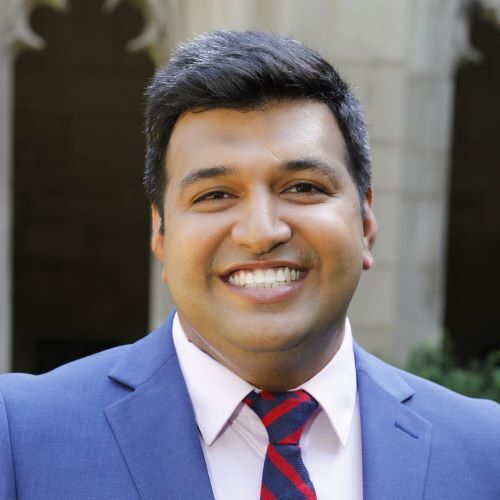
Nishant Vats is an Assistant Professor of Finance at the Olin School of Business, Washington University in St. Louis. Prior to joining Olin, he completed his Ph.D. in Finance at the University of Chicago Booth School of Business.
His primary research interests include finance and development, financial intermediation, and corporate finance. He also maintains a secondary interest in macroeconomics and political economy.